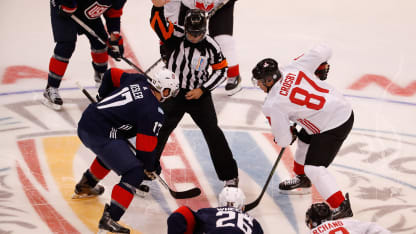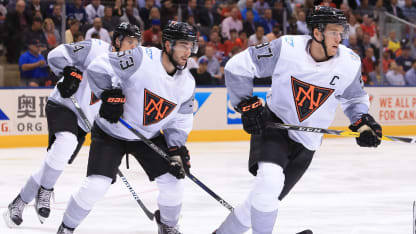Fehr mentioned that he doesn't think tying the potential marketing, promotion and branding opportunities a World Cup presents to collective bargaining is necessary.
"That said, I understand the sensitivity, I understand the timing from their standpoint and if there is a way that we can get all that done, certainly we'll try," Fehr said.
The League and the NHLPA are talking about changing the World Cup format for 2020 to make it a multi-city tournament that would feature eight national teams.
The World Cup of Hockey 2016 was played in Toronto and featured six national teams as well as two mixed teams, Team North America and Team Europe. Team North America was made up of the best players 23 years old or younger from the United States and Canada. Team Europe was made up of the top players from the European countries that were not already represented in the World Cup (Sweden, Finland, Czech Republic, Russia). Canada defeated Team Europe in two games to win the gold medal.
"I'd say our preliminary discussions would be leaning toward eight national teams as opposed to those two teams, but we had a lot of success with those two teams," Daly said. "So, I wouldn't rule it out, I just would say it's probably not the favorite right now."
Daly said the NHL is also interested in staging an international event similar to golf's Ryder Cup, but that's part of a larger international schedule it still hopes to work out with the NHLPA.
"A lot of that is dependent on having a long-term relationship through the Collective Bargaining Agreement, so we'll see how that plays out," Daly said.
Daly said the League's position on its players participating in the Olympics has not changed.
The NHL did not send players to the 2018 PyeongChang Olympics after participating in the previous five Winter Games. There is no current agreement for NHL players to attend the 2022 Beijing Olympics.
"There's nothing new on the subject," Daly said. "You've heard what our owners' position is on the subject. We know the players very much are in support of participating in the Olympics. We're going to have discussions between now and then and we'll see where it goes."



